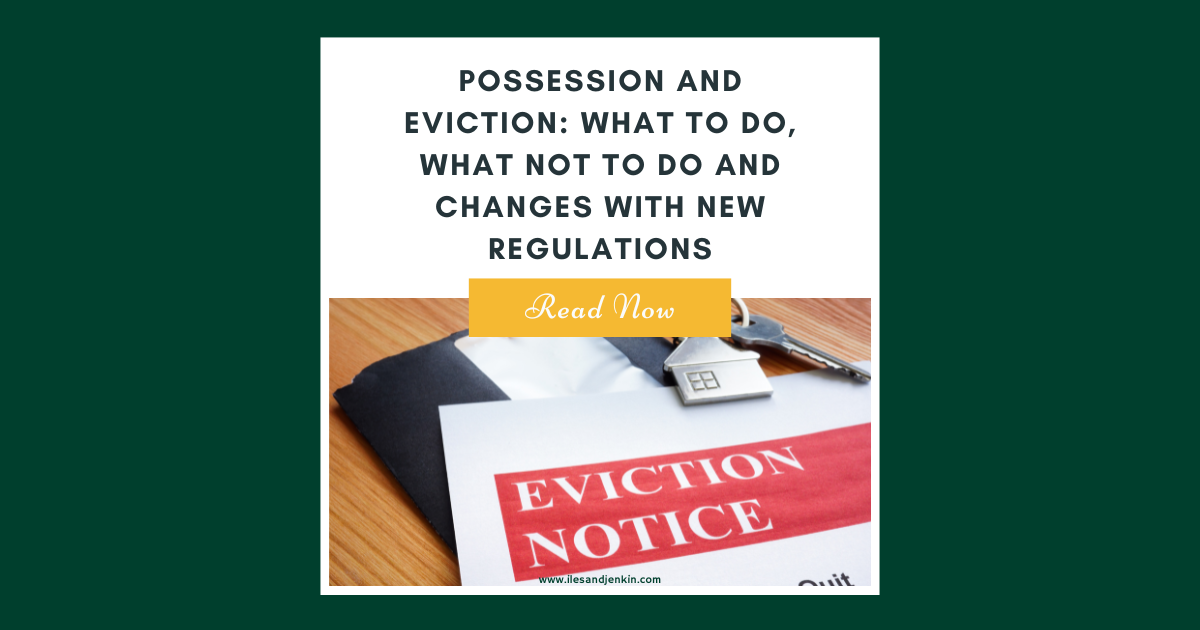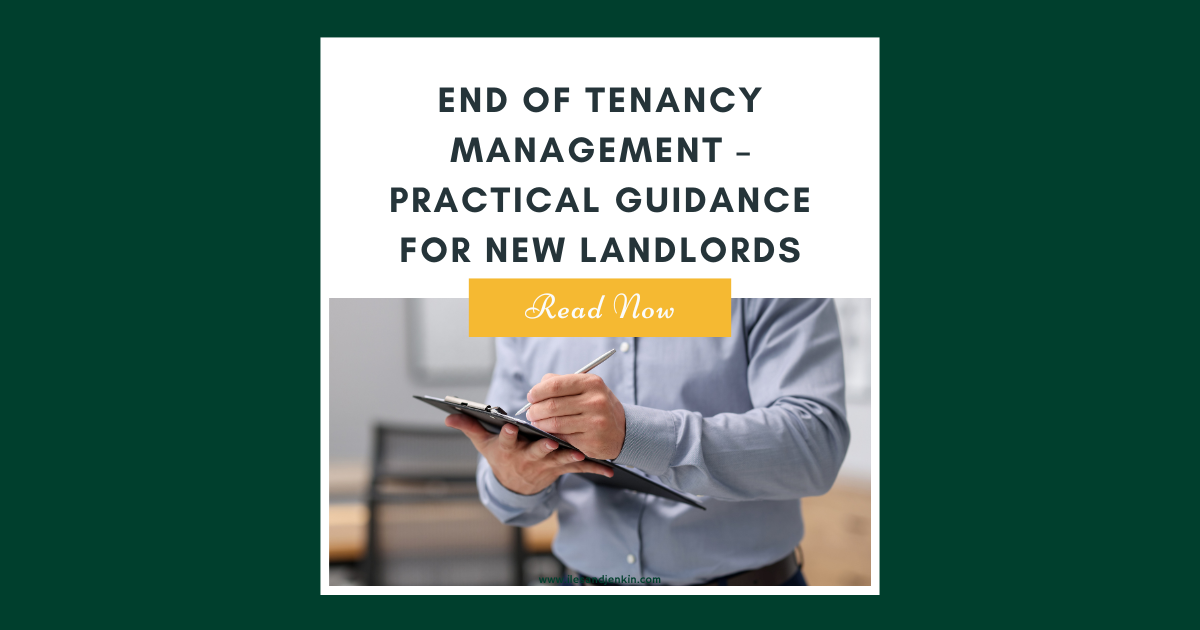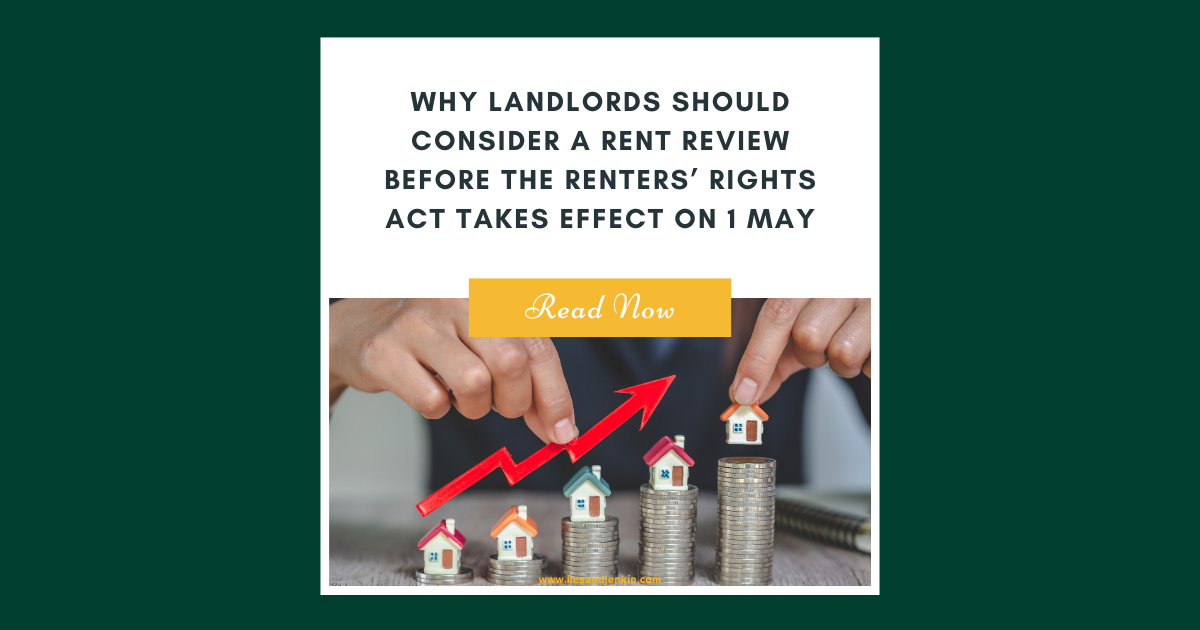Possession and Eviction: What To Do, What Not To Do and Changes With New Regulations
Managing tenant evictions and regaining possession of a rental property can be one of the most challenging aspects of property management. With changing legislation and delays in court processes, it's essential for landlords to understand the best practices for handling evictions while remaining compliant with legal requirements.
This guide outlines the legal pathways, potential risks, and alternative strategies for securing vacant possession. Ultimately, the key to avoiding disputes lies in ensuring that the tenancy is set up correctly from the start.
1. Understanding the Eviction Process
Evicting a tenant involves a structured legal process. To ensure compliance, landlords must follow these steps:
Serve a Possession Notice
- Section 8 Notice: Used when the tenant breaches the tenancy agreement, such as failing to pay rent, engaging in anti-social behaviour, or causing property damage. The notice period depends on the severity of the breach.
- Section 21 Notice: Used when regaining possession without fault. Before serving, landlords must ensure compliance by providing an Energy Performance Certificate (EPC), Gas Safety Certificate, and the "How to Rent" guide.
Apply for a Possession Order
If the tenant does not vacate after receiving a valid notice, landlords must apply for a court order:- Accelerated Possession Proceedings: Suitable for Section 21 cases without rent arrears.
- Standard Possession Proceedings: Required for cases involving rent arrears or a Section 8 notice.
Enforce the Possession Order
If the tenant does not leave after the possession order deadline, landlords can:- Request a County Court Bailiff to enforce the order.
- Apply for a writ of possession to engage a High Court Enforcement Officer for faster action.
When the Renters’ Rights Bill comes into effect, Section 21 notices will be banned, making it crucial for landlords to understand Section 8 grounds for possession.
2. County Court Bailiffs vs. High Court Enforcement
After obtaining a possession order, landlords can choose between two enforcement options:
County Court Bailiffs
- Affordable but often delayed due to high demand.
- A structured process with predictable timelines.
High Court Enforcement Officers
- Faster enforcement, often within days.
- Higher costs and requires court approval to escalate.
The choice between these methods depends on urgency, cost, and case specifics.
3. Abandonment Notices
When a tenant appears to have abandoned the property, landlords must proceed cautiously:
- Look for signs of abandonment (e.g., unpaid rent, uncollected mail).
- Attempt to contact the tenant.
- Serve an Abandonment Notice at the property and their last known address (usually providing 14-28 days notice)
- If in doubt, apply for a possession order to avoid legal risks.
Important: Never assume abandonment without clear evidence. Unlawful eviction claims can lead to legal consequences.
4. Settlement Agreements
A settlement agreement can provide a faster, less costly alternative to eviction when disputes arise.
What is a Settlement Agreement?
A legally binding contract where the tenant agrees to vacate the property under specific terms, often in exchange for waiving some arrears or legal fees.When to Use a Settlement Agreement
- To avoid lengthy court proceedings.
- When tenants face financial hardship.
- To secure possession without eviction risks.
Ensure the agreement is clearly documented and signed by both parties to avoid future disputes.
5. Be Prepared
Preventing disputes begins with strong property management practices:
Choose the Right Tenants
Conduct thorough referencing, including ID verification, Right to Rent checks, and financial assessments.Stay Compliant
Keep up-to-date with regulations, including the upcoming mandatory sanctions checks (effective May 2025).Set Up Tenancies Correctly
Ensure all legal requirements are met at the start of the tenancy to avoid administrative errors that could invalidate eviction proceedings.Protect Against Risks
Consider Rent and Legal Protection services to minimise financial and legal impacts if eviction becomes necessary.
With new regulation changes coming in and increased scrutiny and fines for Landlords and Agents not conducting the correct checks and set up processes, it is more important than ever to ensure you have the correct legal advice and assistance when setting any new tenancies up.
For expert advice or support with letting your property, contact Iles and Jenkin at 01934 512537 or email lettings@ilesandjenkin.com.



 By
By 
 posted by
posted by 


Share this with
Email
Facebook
Messenger
Twitter
Pinterest
LinkedIn
Copy this link